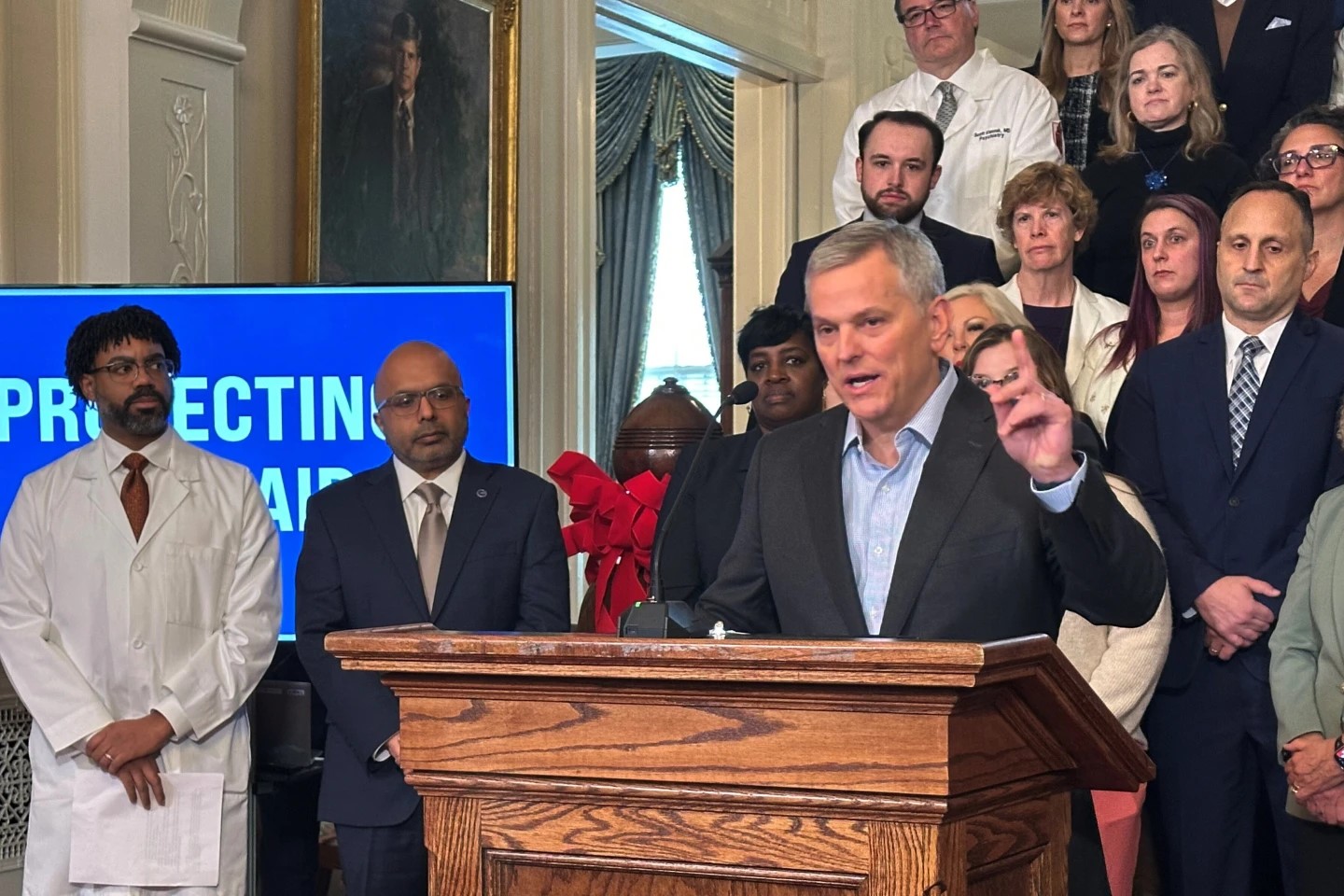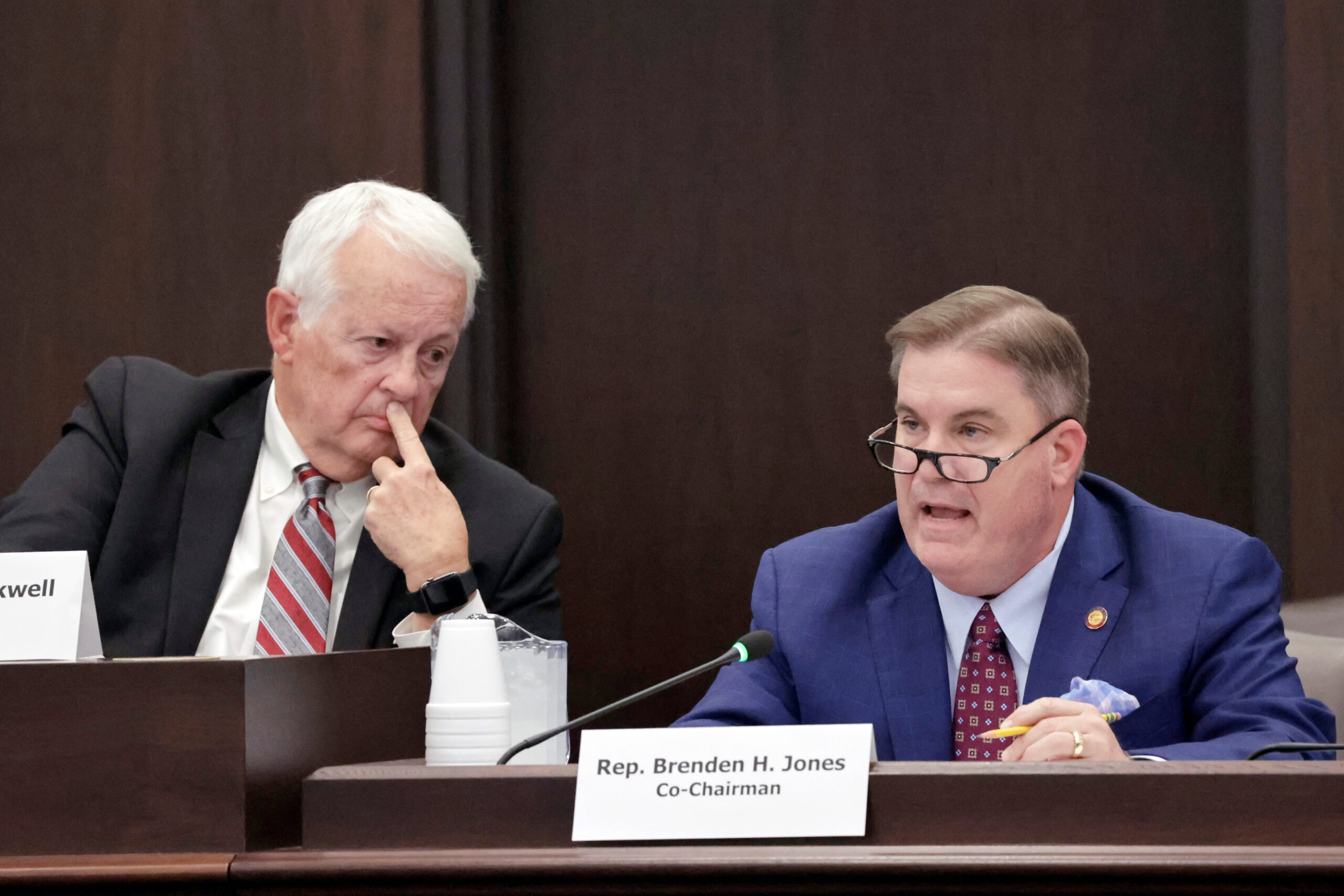Written by GARY D. ROBERTSON
An array of groups and elected officials from both major parties put their weight behind criminal justice reforms in North Carolina on Tuesday at a Legislative Building news conference. But some details aren’t yet finalized.
Speakers emphasized four bills — three that passed the House last week and one omnibus measure that’s expected to clear the Senate as soon as Wednesday. One question will be whether House members will accept additional items contained in the Senate bill or insist on narrower changes. This year’s legislative session likely won’t wrap up work until early summer.
But for Tuesday, legislators, sheriffs, local prosecutors and law enforcement groups focused on praising the efforts to advance changes they say will target bad officers while providing mental health support to all of sworn law enforcement. The effort comes during a time of national focus on racial inequity and police shootings of Black residents, including the choking death of George Floyd in May 2020 in Minneapolis.
“The vast majority of law enforcement officers in this nation are outstanding individuals. They work hard. They protect us. They do what is right,” said Ernie Lee, the district attorney for four eastern counties, but “we also have to improve accountability.”
One House bill approved unanimously would mandate a duty for law enforcement officers to intervene when they believe a colleague is using excessive force, and report what they saw to a superior within 72 hours. Another would require an officer to tell standards commissions when the officer receives a letter from a prosecutor telling the officer they have been untruthful or have committed misconduct and shouldn’t testify in criminal cases.
And a third bill would require officer trainees to receive psychological screening examinations. Continuing education also will include an emphasis on mental health.
“These provisions will not only improve the lives of our law enforcement officers, but I believe that they will improve the communities that these officers daily patrol and protect and preserve,” said Rep. Kristin Baker, a Cabarrus County Republican and chief sponsor of the mental health bill.
The Senate measure contains House provisions and many more changes, including increased penalties for rioting and the creation of new databases to discourage misbehaving law enforcement officers from remaining on the job.
New amendments to the Senate measure on Monday address access by family members to police body camera footage of people who die while interacting with police and raise penalties for suspects whose resistance during an arrest leads to an officer’s injuries.
A wide array of groups across the political spectrum has backed the Senate measure. But a representative of the North Carolina chapter of the American Civil Liberties Union told Senate committee members earlier Tuesday the proposed felonies for resisting arrest goes too far and could splinter the coalition that backed the broader measure.
The resisting arrest change is “a poison pill that doesn’t line up with the rest of the bill,” Daniel Bowes, the state chapter’s director of policy and advocacy, told the Senate Rules Committee. Sen. Paul Newton, a Cabarrus County Republican and amendment sponsor, said the tougher penalties are designed to protect law enforcement from serious injury and deter suspects from fleeing what is otherwise a lawful arrest.
The body camera changes — made in light of last month’s shooting death of Andrew Brown Jr. in Elizabeth City — would allow family members of a person killed by law enforcement to watch unedited officer body camera footage within five business days of their request.
Sen. Danny Britt, a Robeson County Republican shepherding the Senate measure, said the amendment was an agreement reached between members of the Legislative Black Caucus and groups representing district attorneys and sheriffs. On Tuesday, Britt and GOP Rep. John Szoka of Cumberland County didn’t make any commitments about the future of the bodycam language.
The bill also contains some recommendations from a task force commissioned last year by Democratic Gov. Roy Cooper on racial equity and criminal justice. But the more dramatic changes — including reforms to bail and the death penalty and a greater emphasis on addressing any racial bias in the ranks — were left out.









